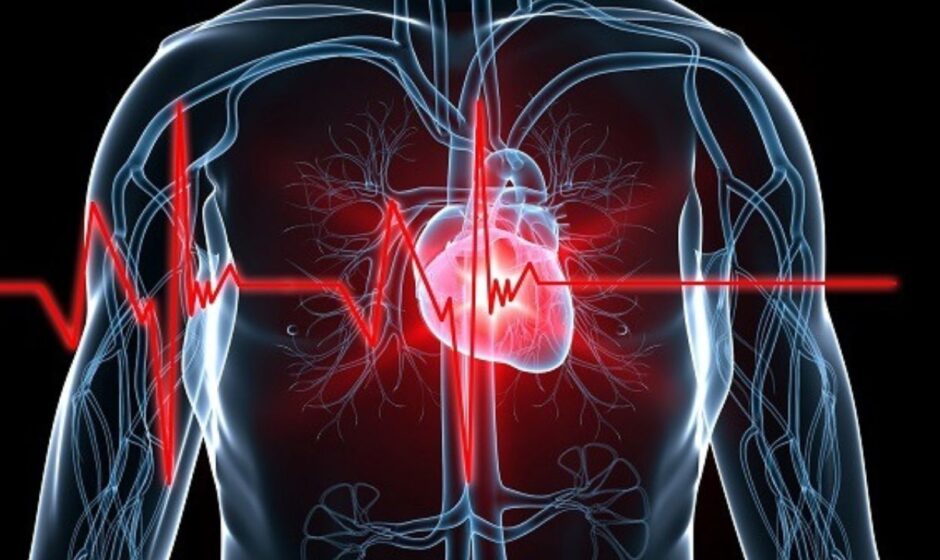While special times of year can be the most brilliant season, they can likewise be one of the most distressing — particularly for heart attacks.
Along with traveling, family time, and festivities, the celebrations are also linked with an increase in heart attacks, strokes, and irregular heart rhythms.
This year, the holiday season may be even deadlier than usual, with Christmas Day on a Monday, according to a study presented at the British Cardiovascular Society earlier this year.
The study authors found that the risk of a heart attack symptoms was higher on Mondays than on other days.
This expansion in heart-related issues is believed to be the consequence of numerous variables, including expanded liquor utilization, more prominent pressure, and dietary changes, for example, eating more salt than expected.
“The heart doesn’t get to take an occasion,” says Scratch Ruthmann, a cardiologist at the Cleveland Facility. “Neither does your wellbeing.”
This is what specialists are familiar with: why special times of year are especially distressing for the heart and how individuals might diminish their gamble of respiratory failures, strokes, and arrhythmia.
Effects of alcohol
Holiday heart disorder alludes to the expansion in sporadic heart rhythms, known as atrial fibrillation, that is connected to an unexpected ascent in liquor utilization. As Ruthmann makes sense of, liquor is remembered to upset cells of the heart, prompting unpredictable electrical motivations that make the offices of the heart quit pulsating in synchrony. Thus, this powers the heart to pulsate quicker to compensate for its diminished viability. The reduced effectiveness of the heart can permit blood to deteriorate in the chambers, framing clusters that can then go through the body, prompting a stroke.

The risk with atrial fibrillation is that assuming it continues excessively lengthy, it can cause super durable harm.
“The more you are in atrial fibrillation, the greater open door there is to shape a stroke or to foster heart shortcoming or cardiovascular breakdown from having such a fast heartbeat,” says Shaline Rao, a cardiologist at NYU Langone Emergency Clinic – Long Island, who spends significant time in treating cardiovascular breakdown. “These are things that, when gotten early, we have a ton of chance to forestall and invert.”
Signs of atrial fibrillation
For certain individuals, going into atrial fibrillation prompts observable side effects, like a hustling heart, powerful or skipped pulses, or dazedness. Others probably won’t see that something is off-base. In these circumstances, it may be useful to have a wearable gadget, for example, Fitbit or Apple Watch, that can distinguish sporadic heart rhythms. Individuals who are at a higher gamble for creating atrial fibrillation incorporate grown-ups who are beyond 65 years old and have a family background of the condition.
“No wearable is great yet,” Ruthmann says, adding that “a bigger number of times than not, it can once in a while be the sole proof there is an issue.”
Notwithstanding the connection between atrial fibrillation and liquor utilization, it’s believed that different elements can likewise add to this condition. Some occasion-related risk factors include expanded pressure, expanded salt in the eating regimen, significant changes in actual work, unfortunate rest, or missing prescription dosages. Atrial fibrillation can likewise be fostered after a coronary episode.
“Every one of these can build the gamble of atrial fibrillation in patients,” says Johanna Contreras, a cardiologist and volunteer for the
Heart attacks are especially deadly during the holidays.
Notwithstanding the expansion in atrial fibrillation — which is connected to a higher gamble of strokes — the colder time of year occasions are likewise connected with a 15 percent more serious gamble for coronary failures, which incorporates a 37 per cent higher possibility of fostering a coronary failure on Christmas Eve.
“More individuals pass on from coronary failures among Christmas and New Year’s than some other season,” Ruthmann says.
A portion of the explanations behind the higher gamble of fostering a coronary failure during special times of year is connected to the higher gamble of creating atrial fibrillation. A coronary episode happens when a blockage causes a decrease in the bloodstream to the heart, which can harm or obliterate pieces of the heart muscle. This harm can likewise cause a sporadic heartbeat, like atrial fibrillation. In the meantime, similar gamble factors related to creating atrial fibrillation are likewise connected to the gamble of fostering coronary failure. “They are entwined,” says Sadeer Al-Kindi, a Houston Methodist Medical Clinic cardiologist.
The chances of biting the dust from a coronary failure are most noteworthy on December 25, trailed by December 26 and January 1. Even with the occasion-related risk factors, there is often a hesitance to look for clinical consideration.
“During special times of the year, individuals would rather not go to the specialist,” Rao says. “They would rather not think something is off-base.” Be that as it may, holding up can have a few serious results, prompting extremely durable harm, even passing, if not treated quickly.
Warning signs
As the American Heart Affiliation notes, some significant advance notice indications of cardiovascular failure can incorporate chest torments, agony or uneasiness in the chest area, like the arms, back, neck, jaw or stomach, or windedness.

Side effects can include sickness, tipiness sensations, or nervous perspiration. It’s additionally vital to perceive that cardiovascular failures can look altogether different in ladies, with additional ladies revealing side effects like windedness, sickness, or back or jaw torment.
Side effects of atrial fibrillation can incorporate a dashing heart, sporadic pulses, shuddering or strong pulses, perspiring, dazedness or shortcoming, faintness, windedness, turning out to be handily worn out during exercise, or encountering chest torments. A few patients may not encounter side effects. For the two circumstances, it’s basic to look for clinical consideration immediately by calling 9-1-1 or going to the closest trauma centre.
How to have a heart-healthy holiday
To decrease the gamble of creating occasion-related heart issues, it assists with focusing on solid propensities, like eating and drinking with some restraint, getting satisfactory rest measures, and adhering to a practical workout daily schedule. For individuals who are voyaging, it’s memorable’s critical to pack your drugs, including an adequate number of additional dosages to oblige for any expected crises or postponements.
FAQ
Why are heart attacks so common on Christmas and New Year’s?
It’s a combination of over-indulgence, cold weather, stress, and, most importantly, people are reluctant to go to the hospital on a holiday. It all adds up to a 40% spike in heart attacks between Christmas and New Year’s. Heart attacks are the leading cause of death in the U.S., and during the winter holidays, those fatalities increase.
Why is cardiac mortality higher around Christmas and New Year’s?
1 May 2021 study in the International Journal of Cardiology recommended cardiac mortality is higher around Christmas and New Year’s than at any different time of year. “Holiday heart syndrome is essentially when the heart exhibits an irregular heartbeat after stuffing in alcohol or salty foods,” explains Dr. Rami Hashish,
Are heart attacks more common during the winter holiday season?
DALLAS, Dec. 7, 2021 — Scientific analysis over time has shown an uptick in cardiac occasions during the winter vacation season, and more useful people die from heart attacks between Dec. 25 and Jan. 1 than at any different time of the year.
Why do so many people die during Christmas & New Year?
For more than a decade, investigators have documented the fact that more someones tend to die of heart-related disease around the Christmas and New Year’s holidays than at any other time of the year.



